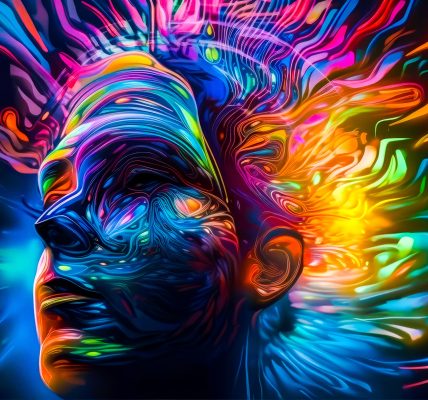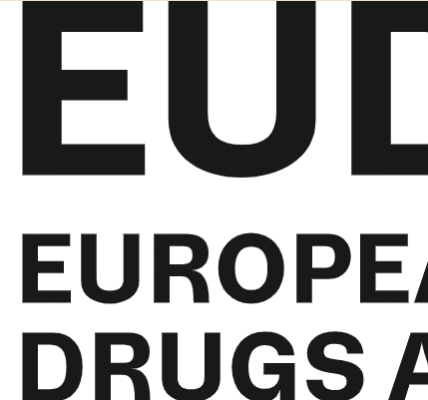In Search of the Connection Between Depression and Addiction

In January, we surfaced an article with a tantalizing headline: “Exploring the Mind: Brynlee Cardall’s Literature Review on the Connection Between Depression and Addiction,” published on Brigham Young University’s website. Cardall’s literature review was published in Chasm, the undergraduate journal of BYU’s Neurosciences Center.
Cardall’s research explored the scientific literature looking for overlaps between the mechanisms of depression and addiction. What she found was stress. Stress was a common ingredient propelling both disorders. Specifically, Cardell zeroed in on the habenula:
[A] region in the brain that interprets reward signals, anxiety, and stress, can potentially be linked to depressive episodes.
Intriguingly, the profile of Cardell mentions that the habenula is active during meditative practices. “Meditation helps regulate the number of serotonin receptors in the brain and can help combat depression,” according to the article. However, the article provides no link to Chasm, and on the Chasm website, the article is only indexed, not provided in its entirety. It seems strange that there is no way for the public to access this research through the Internet, and evaluate the claims being made.
The profile of Cardell says:
Cardall wants to add to existing research on how the habenula impacts depression to determine if depression is a circuitry or reward learning issue rather than a serotonin issue. If she can prove this theory, she could show that medication that increases serotonin activity is not the only way to treat depression.
It’s an interesting theory; we would like to see the work. But it did get us looking around, and the National Institutes of Health provides a complete journal article on the impacts of early-life stress on the brain’s reward mechanism. The article was put together by an international team of neuroscientists affiliated with the Department of Psychiatry and Human Behavior, Alpert Medical School of Brown University in Providence, Rhode Island.
The researchers found, “The neurobiology of response to early stress and of reward processing overlap substantially.” The authors show that early life stress “results in deficits of ventral striatum-related functions of reward responsiveness and approach motivation.” This indicates a depressed reward system. However, juvenile stress leads to “an increased hedonic drive.” The authors conclude that “decreased indices of approach motivation and responsiveness to reward appear to be more common when the stressor is experienced earlier in life.”
Interestingly, these researchers also arrive at mindfulness as a therapy for addiction:
[S]pecialized mindfulness training for addiction […] has been hypothesized to restructure associative learning and valuation of natural rewards via alterations to anterior cingulate and ventral striatal activity.
And that brings us to the work of Dr. Eric Garland, Director of the Center on Mindfulness and Integrative Health Intervention Development at the University of Utah, and Associate Director of Integrative Medicine in Supportive Oncology at the Huntsman Cancer Institute. Dr. Garland posits that “hedonic dysregulation is at the root of an array of clinical disorders, including addiction, stress, and chronic pain” and that “novel interventions are needed to restore hedonic regulatory processes gone awry in persons exhibiting addictive behaviors.”
Dr. Garland developed the Mindfulness-Oriented Recovery Enhancement (MORE) intervention to help adjust hedonic dysregulation to value natural rewards more and drug rewards less. We have covered MORE previously on AddictionNews. It has undergone multiple randomized controlled trials demonstrating its effectiveness in reducing both cravings and relapse in people undergoing treatment for substance use disorders.
I don’t find any mention of the habenula in Dr. Garland’s article on stress and reward processing. Maybe we could get the Center on Mindfulness to look at the habenula and BYU’s Neurosciences Center to look at MORE and together find a stress-activated pathway common to addiction and depression that can be moderated or reset using advanced cognitive behavioral therapy such as MORE? We look forward to following the science of mindfulness and addiction here at AddictionNews.
Written by Steve O’Keefe. First published July 9, 2024.
Sources:
“Exploring the Mind: Brynlee Cardall’s Literature Review on the Connection Between Depression and Addiction, BYU College of Life Sciences, January 10, 2024.
“The Effects of Early Life Stress on Reward Processing,” Journal of Psychiatric Research, June 2018.
“Restructuring reward processing with Mindfulness-Oriented Recovery Enhancement: novel therapeutic mechanisms to remediate hedonic dysregulation in addiction, stress, and pain,” Annals of the New York Academy of Sciences, April 2016.
Image courtesy Wikimedia Commons, used under Public Domain.




